SUMMARY
This is AI generated summarization, which may have errors. For context, always refer to the full article.
![[OPINION] Peace – the missing link](https://www.rappler.com/tachyon/2020/08/tl-peace-missing-link.jpg)
In honor of Fidel Agcaoili and Randall Echanis
Adding yet another issue to the many we have to deal with does not sound like a good idea. But pushing to restart peace talks between the government and the National Democratic Front may, in fact, be the missing link that can bind many issues of the opposition, and create better conditions for opposition unity. As veteran peace activists Bobby Tañada and Ed Garcia put it, we need to “reinvent resistance.”
Opposition to the Duterte regime is driven by its authoritarian tendencies, at the center of which is the Anti-Terrorism Law. This law is targeted firstly at the open infrastructure of the NDF, but could just as easily be used against the rest of the opposition. Even before the law was passed, the military has arrested organizers, raided offices, and killed legal national democratic cadre accused of being NPA. Restarting a campaign to resume peace talks has to start with protesting these counterinsurgency tactics.
The brutal murder of Randall Echanis is the most recent and most publicized because Echanis was a national leader of the NDF. Although there is, as yet, no conclusive evidence that Echanis was killed by state agents, the way the police have conducted themselves in the aftermath of the murder is equally condemnable. What is the reason for taking Echanis’ remains away from his family? For arresting a paralegal who happened to be at the funeral parlor?
Mobilization for the recent SONA protests showed that opposition cooperation, with a few hitches, is possible. But opposition issues, by next year, will be overtaken by preparations for the 2022 national elections. It is important to gain momentum on a few issues to counteract the divisive thrust of elections. One such issue is peace. Campaigns against the anti-terrorism law can gain more adherents if peace negotiations are counter-posed to intensified counterinsurgency. It can become a campaign issue, and push the next administration to make an early start to the peace process.
Duterte declared the “permanent termination” of peace talks in March 2019. At some point he said, “Wala talagang nangyari (Nothing was really accomplished).” In fact, a lot was accomplished in 4 rounds of formal negotiations held in Oslo, in Rome, and in the Netherlands from August 2016 to April 2017. On June 8, 2018, the two panels signed an “Agreement on a Stand-Down for the Resumption of the Formal Peace Talks” scheduled for November of that year. “Stand-down” is another term for ceasefire, which is at core of any peace negotiations.
The formal agreement was: 1) “Stand-Down shall be declared and announced simultaneously by both Parties one (1) week before the agreed date of resumption of the formal talks; 2) “Stand-Down shall be understood to mean temporary cessation of hostilities in which the contending army units and personnel of the Parties stay where they are (“as is where is”), take an active defense mode, and shall not commit any offensive action or operation against combatants and civilians;” 3) “The Stand-Down shall take effect immediately upon its declaration and shall remain effective until replaced by a Coordinated Unilateral Ceasefire (CUC);” 4) “Either Party may terminate the Stand-Down and such termination shall take effect seventy-two (72) hours after receipt of notice by the other Party.”
It was also agreed that: “One member of each panel shall be designated to coordinate matters related to the implementation of the Stand-Down: work on measures to prevent the escalation of hostilities that may arise from certain incidents, and prevent retaliatory acts in such instances; avoid any troop movement by either side that may be considered as “provocative and/or hostile;” ensure the two sides adhere to the provisions of the CARHRIHL.” Common drafts of agreements on Agrarian Reform and Rural Development, on National Industrialization and Economic Development had also been achieved.
In past comments on the peace process, I have been critical of the NDF side. In this case, I think the blame for the breakdown of talks has to be placed squarely on the GRP side. Duterte created the best possible conditions for talks right after his inauguration in 2016. He released imprisoned leaders of the NDF and placed National Democrats in key positions in the Cabinet. But subsequently he has blown hot and cold on talks. There were certainly contentious issues in a little over a year of informal and formal talks, but nothing justifying the abrupt steps taken by the government at the end of 2017.
Toward the end of 2017, Duterte issued 3 separate proclamations: Proclamation 360 on November 23, declaring the GRP’s official termination of the peace negotiations; Proclamation 374 on December 5, designating the CPP and the NPA as terrorist organizations, followed by asking a Manila trial court to so declare them, as required by law; and Executive Order 70 on December 4, creating the National Task Force to End the Local Communist Armed Conflict (NTF-ELCAC). Since that time, the Task Force has led a violent counterinsurgency campaign complete with red-tagging, raids, questionable arrests, detention, and filing of trumped-up, non-bailable criminal charges.
One would have thought that these formal declarations would mean the end of talks altogether. In fact, in April 2018 “back channel” talks restarted, producing the all important framework for a ceasefire agreement. Formal talks were scheduled for November, but once again scuttled by Duterte. It was only in April 2019 that Duterte declared the “permanent termination” of talks. Perhaps more important, he disbanded the GPR panel headed by Dureza and Bello who had built up a level of trust with NDF negotiators. Since that time there have been no formal or “back channel” talks. Duterte has made noises about being willing to reopen talks by talking directly to Jose Ma Sison but setting an impossible condition, Sison coming to the Philippines.
Gabrielle M Tanada, 24, and Paolo T Palanca, 24, who were invited by Bobby Tañada and Ed Garcia to comment on their publication, said it best: “A just peace is not merely a destination, but a constant journey – and, we can reinvent resistance as a constant conversation, as a quiet but fierce reckoning.” – Rappler.com
Joel Rocamora is a political analyst and a seasoned civil society leader. An activist-scholar, he finished his PhD in Politics, Asian Studies, and International Relations in Cornell University, and had been the head of the Institute for Popular Democracy, the Transnational Institute, and the Akbayan Citizens’ Action Party. He worked in government under former president Benigo Aquino III as the Lead Convenor of the National Anti-Poverty Commission.
Add a comment
How does this make you feel?
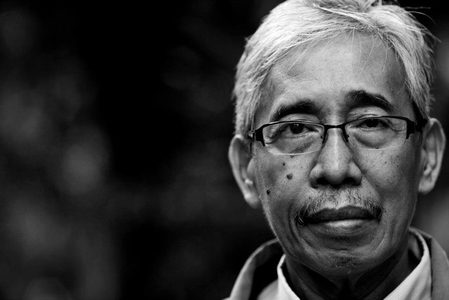

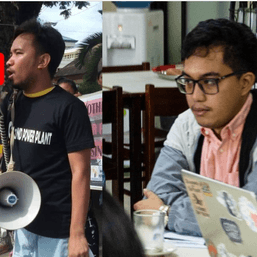
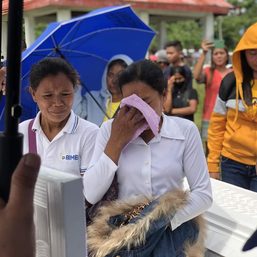
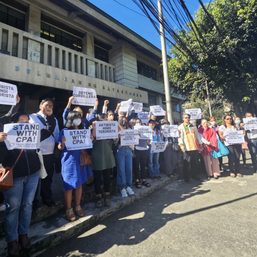
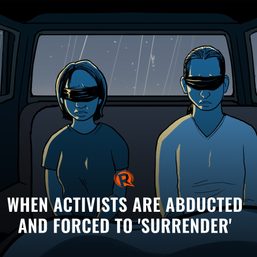

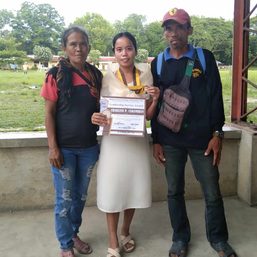
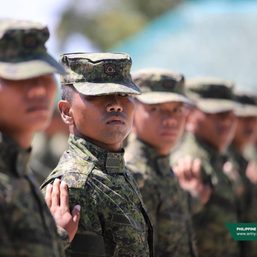

![[OPINION] The CPP-NPA’s 3rd Rectification Movement is bad news to the peace process](https://www.rappler.com/tachyon/2024/01/tl-cpp-npa-peace-talk-rectification.jpg?resize=257%2C257&crop=366px%2C0px%2C1080px%2C1080px)

![[OPINION] ‘Some people need killing’](https://www.rappler.com/tachyon/2024/04/tl-some-people-need-killing-04172024.jpg?resize=257%2C257&crop_strategy=attention)


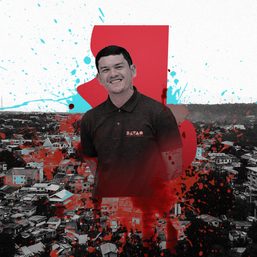
![[Just Saying] The Philippines’ embarrassing abstention from the UN resolution calling for peace](https://www.rappler.com/tachyon/2023/11/20231101-PH-abstentation-UN-resolution.jpg?resize=257%2C257&crop=262px%2C0px%2C720px%2C720px)
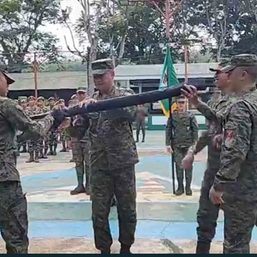
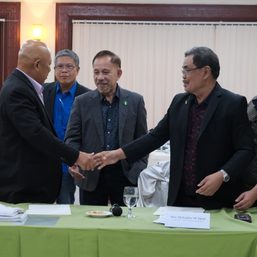
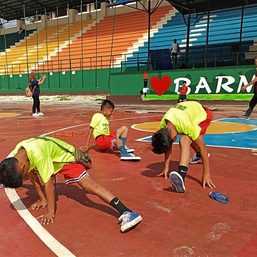
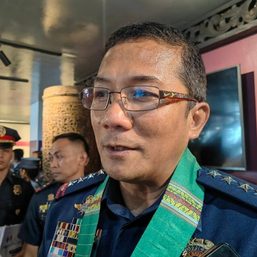
There are no comments yet. Add your comment to start the conversation.